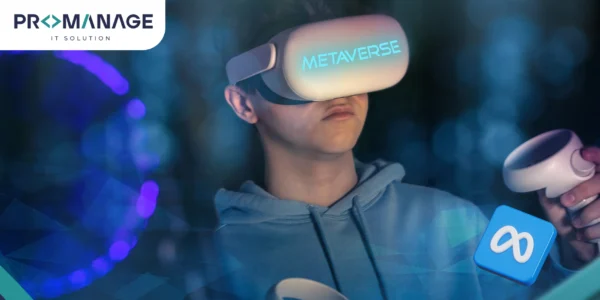Ahrefs Launches Tracker Comparing ChatGPT & Google Referral Traffic: What It Means for Marketers
For around two decades, digital marketers have lived and breathed one mantra: Google Rules traffic. But in 2025, a new participant is moving on to all fours into the data charts: AI search assistants like ChatGPT.
This month, Ahrefs released a new public dashboard that directly compares referral traffic from Google Search and ChatGPT. It’s one of the first attempts to make AI-driven search measurable in the same way we’ve long measured search engines.
And while Google still dominates (by a mile), the early numbers show that ChatGPT is becoming a real, if small, referral channel.
So, what exactly is this tracker? What do the numbers tell us? And should marketers start worrying or experimenting? Let’s understand this.
What Exactly Did Ahrefs Launch?
Ahrefs, best known for its SEO toolkit, rolled out a monthly tracker that measures how much traffic websites get from:
- Google Search referrals
- ChatGPT referrals
The dashboard uses data from 44,421 websites connected to Ahrefs’ free Web Analytics tool.
The goal is simple: to show how AI-driven referrals are growing month by month and how they compare with Google’s traditional search traffic.
This is huge because up until now, “AI search” has felt untouchable! Everyone talks about it, but marketers have struggled to measure whether tools like ChatGPT actually send traffic.
Now, with this dashboard, we finally have something concrete to work with.
The Early Numbers: Google Still Rules, ChatGPT Is Growing
Let’s look at the July 2025 data that Ahrefs reported:
- Google: 41.9% of all traffic in the dataset.
- ChatGPT: 0.19% of all traffic.
That’s right! Google is still the king: Driving over 200x more traffic than ChatGPT.
But here’s the twist:
- Google grew by +1.4% month over month.
- ChatGPT grew by +5.3% month over month.
The month before, the growth rates flipped:
- Google grew +6.8%.
- ChatGPT grew +1.6%.
What does this mean?
Google remains stable and dominant. Even small growth percentages on such a huge base are powerful.
ChatGPT is growing faster proportionally. Since its baseline is so small, even small increases translate to big growth percentages.
As Ahrefs summarized:
“ChatGPT is growing 3.8x faster than Google.”
And while 0.19% of traffic might sound insignificant, remember this: two years ago, it was effectively 0%.
That means a new channel has appeared on the radar! One worth watching.
Why Does This Tracker Matter?
![]()
If you’re in SEO or digital marketing, the significance of this launch goes beyond the numbers. Here’s why:
- AI search is now measurable – For the first time, you can benchmark how much traffic ChatGPT is actually sending. This moves the conversation from hype to hard data.
- Marketers can spot trends early – Imagine it’s 2006, and someone showed you Google’s growth trajectory. You’d have started planning strategies earlier. The same logic applies here.
- SEO vs AEO (Answer Engine Optimization) – Old SEO optimizes for Google. But AI tools are answering the queries in a different manner! Businesses may need to think about “answer engine optimization” to appear in AI responses.
- Investor & C-suite interest – For decision makers, having a graph of Google vs ChatGPT traffic is a strong way to visualize disruption and prioritize resources.
How Is the Data Collected?
It’s worth understanding how Ahrefs is pulling these numbers.
- The dataset is limited to sites that appear in all tracked months. This ensures continuity and avoids skewed results.
- Traffic is measured via referrer data! Basically, when a visit comes from a source that passes referral information (like “google.com” or “chat.openai.com”).
But here’s the catch:
- Many AI assistants or in-app browsers strip referrer data (using noreferrer). That means AI-originating visits can be undercounted.
- For example, if someone copies text from ChatGPT into a browser, it won’t register as “ChatGPT referral.”
So while the 0.19% figure looks tiny, the real number may be higher.
Important Caveats to Keep in Mind
Before we get too excited (or worried), let’s level-set:
- It’s not representative of the entire web. The tracker only uses sites connected to Ahrefs Web Analytics. While 44,421 sites is a big sample, it’s still a slice.
- Google is not slowing down. Despite all the “AI is replacing search” headlines, Google continues to grow in absolute traffic.
- ChatGPT is an early-stage. Right now, most people still use it as a productivity tool, not a search replacement. Referral patterns may change as ChatGPT integrates deeper into browsing.
- Data blind spots exist. As mentioned, missing referrer data means this tracker is a directional metric, not an absolute count.
What This Means for Businesses

So, should you start shifting budget from Google Ads to ChatGPT optimization? Not quite yet.
Here’s how to think about it:
- Google is still priority #1. With 40%+ of traffic, Google remains the backbone of digital visibility.
- Experiment with AI search. Even though ChatGPT referrals are small, they represent an emerging trend. Early adopters could learn valuable lessons before the channel matures.
- Track your own data. If your site uses Ahrefs Web Analytics, monitor how much ChatGPT sends you. If it’s growing faster than your competitors, you’ve found an edge.
- Educate stakeholders. Clients and managers will ask, “Is AI replacing SEO?” Use trackers like this to show the reality: Google dominates, AI is emerging.
What’s Next? The Future of Google vs ChatGPT Traffic
Looking ahead, there are several big questions:
- Will ChatGPT become a mainstream referral source? Right now, it’s niche. But if OpenAI builds tighter integrations with browsers (like ChatGPT search plugins), referrals could spike.
- Will Google defend its dominance with AI integration? Google has already launched AI Overviews in Search. That could reduce clicks to websites even as total search traffic grows.
- How will measurement evolve? As more AI systems adopt noreferrer practices, analytics companies may need new methods to attribute AI-driven visits.
- Could AI create net-new demand? If people ask ChatGPT questions they wouldn’t have typed into Google, this could actually expand the pie instead of splitting it.
Final Thoughts
The Ahrefs Google vs ChatGPT referral tracker is more than just a fun chart. It represents a new chapter in how we understand search, visibility, and traffic sources.
Yes, Google still rules. Yes, ChatGPT is tiny in comparison. But the fact that AI assistants are now sending measurable traffic at all is a seismic shift.
For businesses, the key is balance:
- Don’t ignore Google. It’s still your main pipeline.
- Don’t dismiss AI search. Start testing, learning, and preparing.
Because if history teaches us anything, the digital channels that start at “0.19% of traffic” don’t always stay small.













SEO Team Lead
Preeti is a skilled SEO Team Lead passionate about boosting organic traffic and improving search rankings. She leads with data-driven strategies to help businesses grow online effectively.